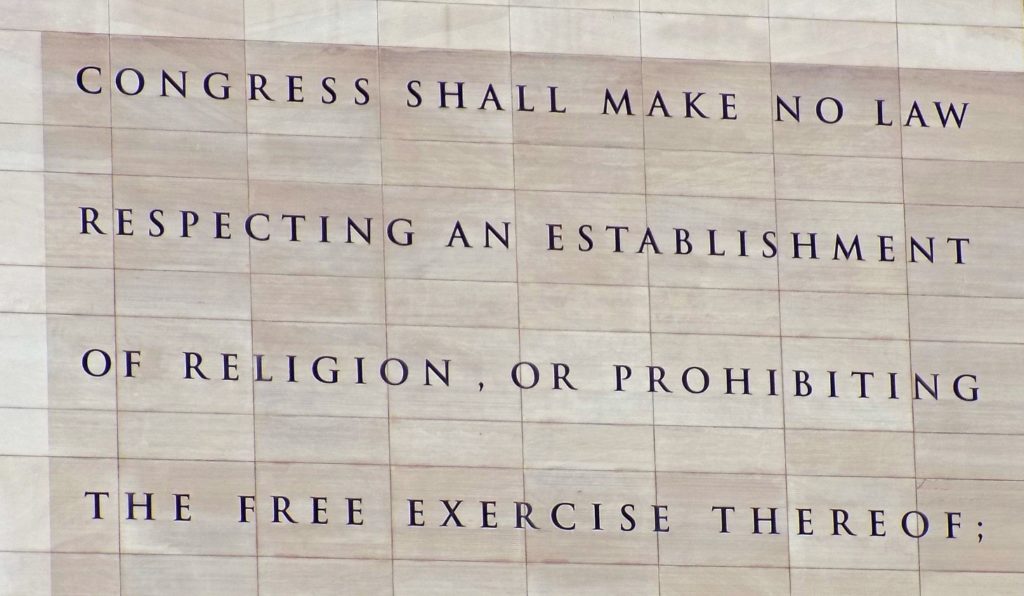WILLS POINT, TX – The ongoing case of the Asia Bibi trial in Pakistan has drawn attention to the imminent danger of blasphemy laws, particularly for Christians. Missions Box News decided to investigate blasphemy laws around the world. Although this article may not contain everything you want to know about it, we think you will learn some things that will surprise you.

How many countries have blasphemy laws?
The United Nations recognizes 193 member nation-states. This does not include the Vatican and the area of Palestinian occupation. Of the 193 nations, at least 77 have blasphemy laws. [1]
| 10 | in East Asia and the Pacific |
| 24 | in Europe and Central Asia |
| 6 | in Latin America and the Caribbean |
| 22 | in the MENA region |
| 3 | in South Asia |
| 11 | in Sub-Saharan Africa |
| 1 | in North America |
The last one in the list may come as a surprise. Canada currently has a blasphemy law on the books, but Parliament is working to remove it.
What are the legal penalties for someone convicted of blasphemy?
Punishments vary from country to country. Conviction on charges of blasphemy is punishable by death in Pakistan, Iran, Afghanistan, Saudi Arabia, Somalia, Nigeria, and Mauritania.
There are numerous countries where conviction on blasphemy charges can result in imprisonment, including Russia, Kazakhstan, Poland, Germany, Turkey, Iraq, Egypt, Jordan, Israel, the UAE, India, Bangladesh, Sri Lanka, Yemen, Oman, Ethiopia, Eritrea, Sudan and South Sudan, Thailand, the Maldives, Malaysia, Singapore, Indonesia, New Zealand, El Salvador, Guyana, Surinam, Gambia, Algeria, and Morocco.
What is the most common punishment imposed by blasphemy laws?
The most common form of punishment is imprisonment. However, some countries also include additional penalties including lashings and forced labor.
Do any countries have apostasy laws?
Yes. In fact, 14 countries in the MENA region alone make it a crime to renounce their official religion.
What makes blasphemy laws inherently unethical?
The concept of a legal structure is to protect the welfare of a country’s citizens. Blasphemy laws are drafted to protect a religion or even atheism. The countries with the strictest blasphemy laws almost always have a state religion.
Blasphemy laws restrict the right of freedom of expression whether to speak for or against a religion. This is, of course, completely contrary to our Creator’s intention which is that “whosoever will may come.”
Blasphemy laws make the state the arbiter of truth.
Blasphemy laws are used as a pretext for extremists to foment hatred against those with whom they disagree.
Is there de facto punishment for alleged blasphemy in countries where there are limited or no blasphemy laws?
This has become a growing concern as Muslim extremists regard Sharia law as overriding all other laws and want to establish a global caliphate where Sharia is the law. This explains the rioting following Asia Bib’s acquittal on blasphemy charges. The protestors believe that Sharia demands death for alleged blasphemers and they believe that Sharia supersedes national law.
What is the UN doing to abolish blasphemy laws among its member states?
In a word, nothing. At least, nothing substantive. It is powerless to do anything other than to make declarations that it cannot enforce.
The UN Special Rapporteur on Freedom of Religion has issued a position statement:
[At] the national level, blasphemy laws are counter-productive, since they may result in de facto censure of all inter-religious or belief and intra-religious or belief dialogue, debate, and criticism, most of which could be constructive, healthy and needed. In addition, many blasphemy laws afford different levels of protection to different religions and have often proved to be applied in a discriminatory manner.
The objective of the United Nations is to bring all nations together in agreement to create global order. However, it has no authority over sovereign states. Therefore, it is largely limited to being a non-binding policy maker. But that is a story for another day.
Has the United States ever had blasphemy laws?
Yes and no. Blasphemy laws would violate the Bill of Rights of the U.S. Constitution. Nonetheless, several states have had or still have blasphemy or similar laws.
Section 36, Chapter 272 of the Massachusetts General Laws still says:
Whoever willfully blasphemes the holy name of God by denying, cursing or contumeliously reproaching God, His creation, government or final judging of the world, or by cursing or contumeliously reproaching Jesus Christ or the Holy Ghost, or by cursing or contumeliously reproaching or exposing to contempt and ridicule, the holy word of God contained in the holy scriptures shall be punished by imprisonment in jail for not more than one year or by a fine of not more than three hundred dollars, and may also be bound to good behavior.
Has anyone ever been convicted of blasphemy by a court in the United States?
Charles Lee Smith, an atheist, was charged and convicted in 1928 for violating a city ordinance against blasphemy in Little Rock, Arkansas. He was fined $25 and sentenced to 26 days in jail. His trial was particularly odd because he refused to swear the oath to tell the truth and was, therefore, not allowed to testify on his own behalf.
In 2007, a gentleman in Pennsylvania was not allowed to incorporate his movie-production company because state law said that his business name contained “words that constitute blasphemy, profane cursing, or swearing, or that profane the Lord’s name.” He sued. The courts eventually ruled that the 1997 law against blasphemy that prohibited his incorporation was unconstitutional.
Ultimately, Christians must accept that this world is not a friend to grace. Whether we are subject to blasphemy laws or not, Jesus warned us that the world will hate us because it hated Him. Let us be thankful for the freedom we have and pray that we will continue to be able to enjoy it until Jesus comes.
To read more news on Blasphemy Laws on Missions Box, go here.
Sources:
- The U.S. Commission on International Religious Freedom, Measuring the World’s Blasphemy Laws
- The Law Library of Congress, Blasphemy and Related Laws in Selected Jurisdictions
- BBC News, Pakistan Christian: Which countries still have blasphemy laws?
- End Blasphemy Laws, The campaign to abolish blasphemy laws worldwide
- The Week, What are the blasphemy laws and punishments around the world?
- Wikipedia, Blasphemy law in the United States
- Mission Network News, Governments rethink blasphemy laws as Pakistan chaos continues
- The Freedom of Thought Report




